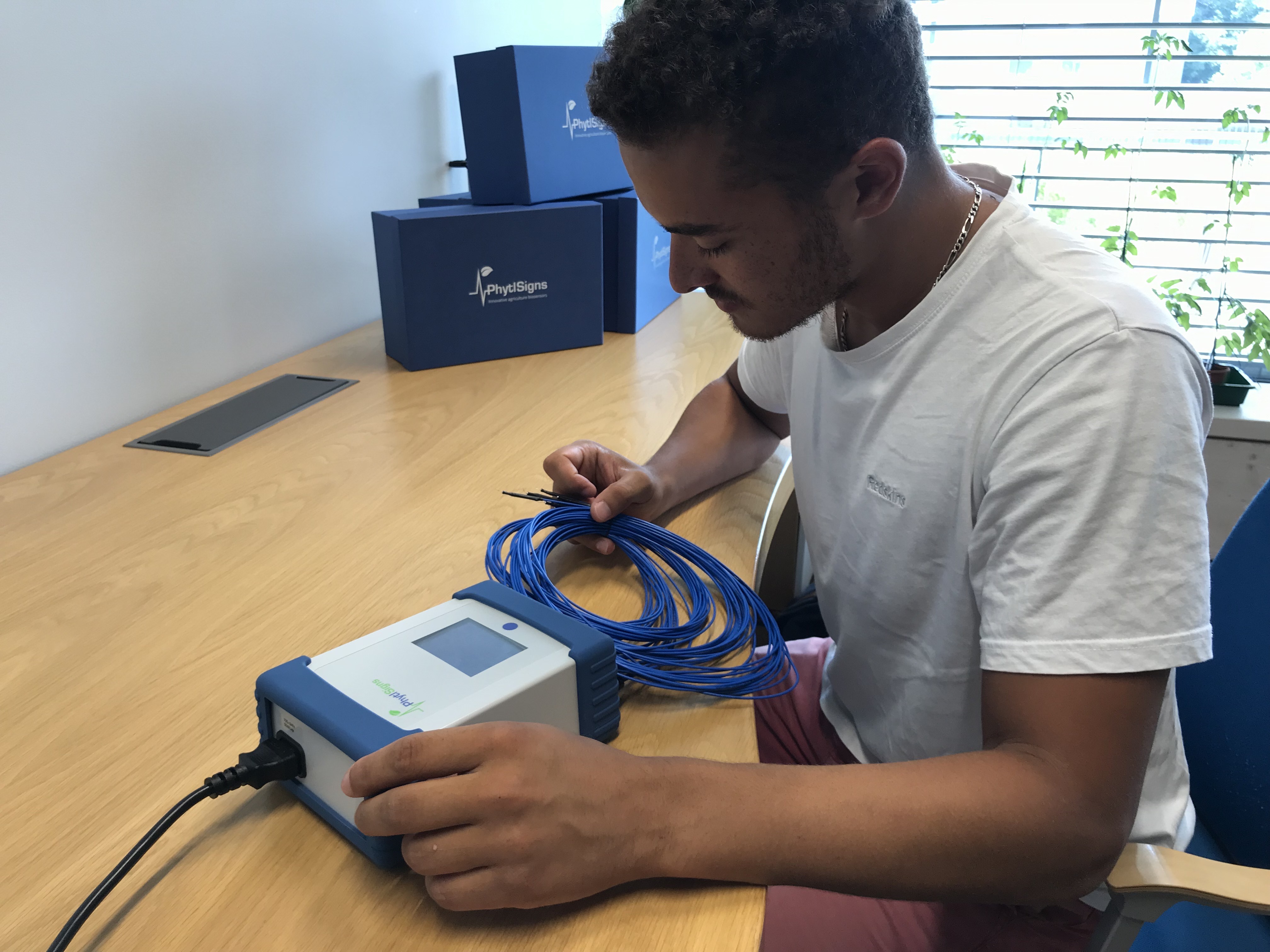How did you arrive at Agroscope Changins?
It is quite a funny story actually. I arrived at Agroscope for my thesis. I got a master's in phytochemistry and plant signalling. And so, I was looking for a thesis in a related field. And I found this thesis topic and opportunity through my Doctoral School in Brittany, but I didn't realize that Agroscope Changins was located in Switzerland [laughs]. However, I went ahead and applied. During the application process, the idea grew on me.
I was like,'' Why not? Let's go!”
So, yes, I was not looking to come here but I came here, and as of now it has been pretty fantastic. It is my third month here. I am going to stay for four years in total, taking a couple of breaks of four months each time to go back to France.
How did you come across Plant Electrophysiology?
At the beginning I was interested in plant signalling based on a book I read five years ago about plant neurobiology. The book is written by an Italian botanist, Stefano Mancuso, and it was pretty fascinating.
“Plant neurobiology? What is it? Plants don’t have neurons… Why are you saying that?”
In the book, he talks about plant senses and their similarities with mammals. It really piqued my curiosity and drew me into plant signaling, in general.
How has been your experience with PhytlSigns?
My experience with PhytlSigns has been so far so good. I think this is just the beginning. We are still very early in the process, but I am excited to see what we can achieve together.
How easy or how difficult was it to use the device?
It is pretty simple, to be honest. You just have to put some probes into the plants and the soil, so it is very intuitive.
What is the most interesting aspect of Plant Electrophysiology for you?
I would say that the most important aspect of research in my field is to be able to decrease the human ecological footprint. Agronomy for example has too many bad effects on the environment. Using plant electrophysiology as a means to decrease those effects is the most important contribution that I can make.
What role will Plant Electrophysiology have in years to come?
I think that plant electrophysiology can have many different uses in agronomy because being able to interpret and understand information that other instruments cannot. So, it could feel the gaps that currently exist.
How do you think Plant Electrophysiology relates to sustainability?
I think it has a symbiotic relationship to sustainability. Through understanding or recognizing patterns in the signals before they are actually visible to the naked eye, you can be much more precise in your cultivation process. By doing so, you will most likely decrease the use of water, intrants, or anything else to reach optimal levels in your cultivation.
What is the aim of your PHD?
The aim of my PhD is to find new potato varieties, which are more drought resistant. I try to understand why some varieties are more drought resistant than others. I try to improve the research done on this subject - to hopefully find better potatoes for tomorrow.

